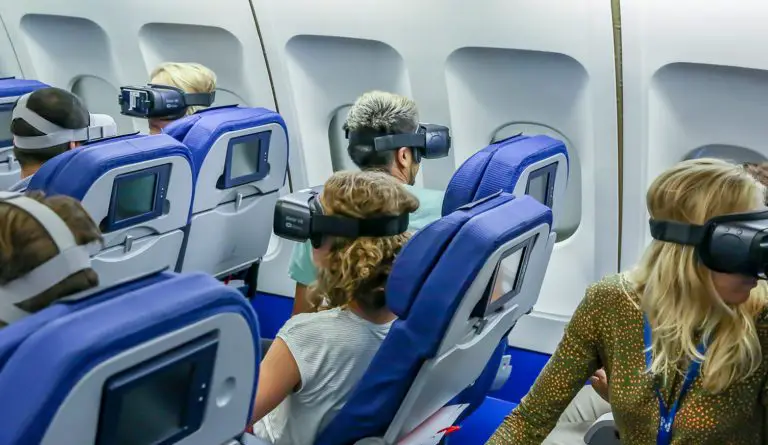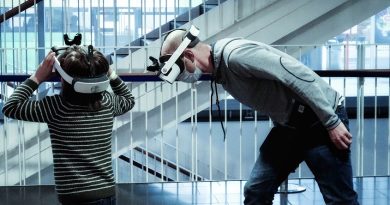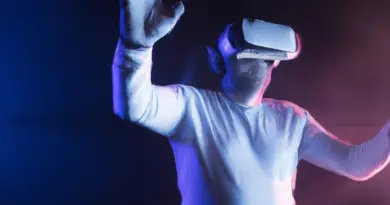Exploring Virtual Reality’s Future in Air Travel
Consider a future airline in-flight experience in which passengers can enter a virtual world via the Metaverse without leaving their seats exploring a nature trail or even meeting a fellow passenger's avatar on a park bench. These are some of the ideas put forth by participants in the 2022 HeroX/Airbus Metaverse Challenge, which attracted more than 60 submissions from individuals, teams, and businesses.
Consider a future airline in-flight experience in which passengers can enter a virtual world via the Metaverse without leaving their seats exploring a nature trail, or even meeting the avatar of a fellow passenger on a park bench. These are some of the concepts proposed by participants in the 2022 HeroX/Airbus Metaverse Challenge, which drew more than 60 submissions from individuals, teams, and businesses. This challenge, initiated by Tugrul Yildirim, Transformation leader at Technology and Engineering, was posted on the HeroX crowdsourcing platform, garnering over 16,800 views and 450+ followers.
The ideas were judged in terms of user experience, creativity and novelty, and ease of implementation, by 14 employees from across the Airbus Commercial Aircraft business. Five winners were chosen to share a $30,000 prize pool.
“Improving the in-flight environment through innovation has always been a priority at Airbus,” Yildirim said. “We’re already on the cutting edge of implementing disruptive multimedia technologies, such as researching how virtual reality can be used.” The HeroX/Airbus Challenge was created to see how others imagined the evolution of air travel through the Metaverse.”
The Winning Entry Was Capgemini’s Airbus “Town Square.”
Capgemini, an international information technology services company, won the top prize of $10,000 with their winning entry, a virtual Airbus town square. After takeoff, this environment would come to life, serving as a hub for an almost infinite number of visual and auditory experiences.
The Airbus town square would be personalized for specifics of the trip (for example, flight destination and time zone changes to reduce jetlag), as well as traveller specifics such as age, entertainment preferences, and dietary restrictions, with passengers logging in via tablets, smartphones, and virtual reality headsets. The hub could also be used as a platform for services, such as in-flight shopping and meal ordering, as well as booking hotels, car rentals, and other post-flight services.
NFTs as Well as A Multiplayer VR Environment
The four other winners of the HeroX/Airbus Challenge received $5,000 each, and one of them was Silicon Harlem’s proposal for an Ethereum-based project in which users can purchase Non-Fungible Tokens (NFTs) that “bloom” into applications to book, experience, and enjoy travel across artificial reality, virtual reality, and the Metaverse. Based in New York, this company aims to transform the city’s Harlem neighborhood and other urban markets into technology and innovation hubs that are fully engaged in the digital economy.
Another winner was Imersifi, a UK-based immersive technology company that specializes in developing virtual and augmented reality applications, which proposed a multiplayer virtual reality environment to keep passengers entertained while flying. It would allow them to socialize with others from their seats (including taking 3D “walkarounds”) while also providing shopping and gaming and relaxation zones.
Individual Proposals That Are Innovative
H. Dhaliwal of Canada submitted one of the two winning individual proposals, with a virtual “sky lounge” application that would allow passengers to leave virtual “mementos” in the sky, the view outside the airplane from any seat, and order food and drinks to be served in real life by flight attendants. Brandon EnWezoh of the United States was the other individual winner, with a metaverse super-app for passengers experiencing flight-related stress, discomfort, or boredom – offering an interactive 360-degree virtual reality environment composed of photo-realistic 3D visuals and incorporating real-time user/flight data.
“The HeroX/Airbus Challenge provided us with an excellent view of how the general public and businesses are beginning to imagine the Metaverse’s role in future air travel,” Yildirim concluded. “We were very pleased with the variety and originality of the ideas submitted, and we gratefully acknowledge all participants for their contributions!”




